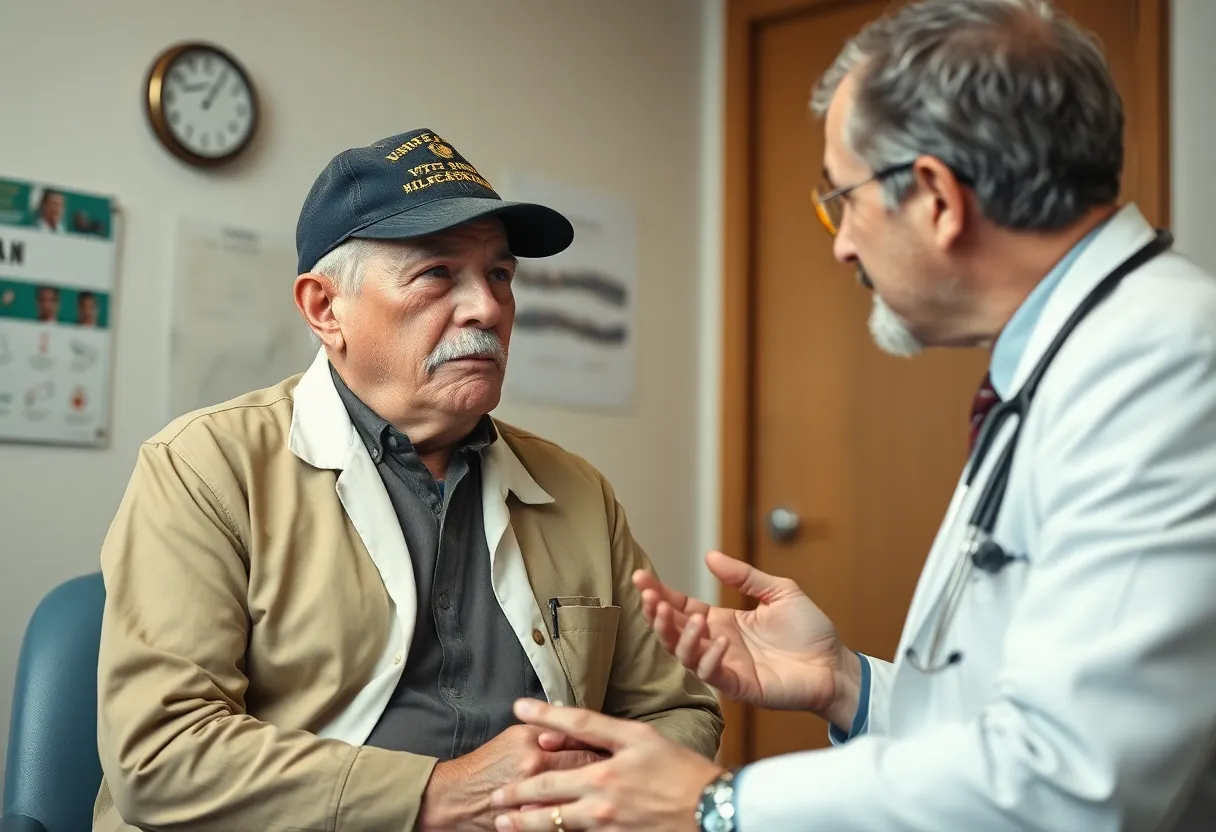News Summary
Decades after military use of asbestos, veterans are facing serious health risks, notably mesothelioma, as exposure remains a grave concern.
Veterans Still Struggling with Asbestos Exposure After Decades
Asbestos, a heat-resistant mineral once heralded as a wonder material, served pivotal roles in numerous U.S. military operations until the alarming health risks became painfully clear in the early 1980s. The widespread use of this carcinogenic substance peaked during World War II, a time when military forces demanded immense quantities of materials to mass-produce essential equipment.
A Legacy of Danger: Asbestos in Military Use
The Navy, in particular, became infamous for its high degree of asbestos utilization. From ships constructed before the 1980s to military vehicles, planes, and even barracks, naval personnel faced significant risks of exposure as manufacturers concealed the dangers associated with this material. While asbestos fibers were incorporated into a myriad of military products, the industry turned a blind eye to the potential health hazards, oblivious to the ticking time bomb of diseases that would ensue.
Health Consequences Loom Over Veterans
As a result, veterans who bravely served their country during conflicts such as World War II, the Korean War, and the Vietnam War now find themselves grappling with various health conditions related to asbestos exposure. The most devastating among these is mesothelioma, a rare but aggressive form of cancer specifically linked to asbestos. Other serious health issues may include asbestosis, lung cancer, and various debilitating respiratory conditions, often taking decades to bring about symptoms.
Concerning Statistics from Colorado
The implications are particularly troubling in Colorado, which houses six major military installations, including the Air Force Academy and Peterson Space Force Base. Both locations have a history of asbestos use, and the state ranks 31st in the U.S. for deaths related to asbestos exposure. Veterans in Colorado are urged to prioritize regular check-ups, as timely detection can significantly enhance treatment outcomes and overall life expectancy.
The Importance of Regular Health Consultations
During medical consultations, veterans should openly discuss their military service and any possible asbestos exposure. Medical professionals stress the importance of early detection, which can make a significant difference in managing these life-threatening diseases.
Support and Resources Available
For those affected, compensation programs exist through asbestos trust funds and Veterans Affairs services. The recently enacted PACT Act by the 117th U.S. Congress aims to provide improved healthcare and compensation avenues for veterans exposed to various toxins, including asbestos. Since its implementation, over four million veterans have undergone screenings for toxic exposure, and approximately 16,000 veterans in Colorado have filed claims with over 8,000 already benefiting from expanded services.
Regulatory Changes and Future Implications
The fight against asbestos exposure took a crucial turn when the Biden administration finalized a ban on chrysotile asbestos, the type predominantly imported for use in the chloralkali industry. Advocacy from survivors, medical professionals, and veterans culminated in this momentous decision, though the specific phase-out period of up to 12 years has raised concerns regarding the continuing risk of exposure from other forms of asbestos.
Despite increased awareness surrounding the dangers of asbestos, the U.S. International Trade Commission noted a dramatic rise in chrysotile asbestos imports in early 2022. This underscores the complexities faced in mitigating the issue even in the face of heightened scrutiny.
A Call to Action for Veterans
In light of these ongoing challenges, veterans must remain vigilant regarding their health. Regular check-ups and open discussions about potential exposures can pave the way for early detection and more effective treatment of asbestos-related diseases. The battle against the consequences of asbestos exposure is far from over, but understanding and utilizing available resources can help survivors navigate the treacherous waters imposed by this lurking menace.
Deeper Dive: News & Info About This Topic
HERE Resources
The Hidden Danger Lurking in Older Buildings: Asbestos Awareness in Renovation Projects
Terminal Battle Against Mesothelioma: A Story of Resilience and a Call for Justice
The Controversial Legacy of Peter Angelos Unveiled by FBI Investigations
Johnson & Johnson Faces Legal Turmoil Over Talcum Powder Asbestos Claims
The Asbestos Litigation Crisis: A Heavy Toll on Small Businesses in California
Contractor Sentenced to 10 Years for Asbestos Fraud and Elder Abuse
The Looming Threat: Silicosis Claims on the Rise
Radiation Therapy for Mesothelioma Patients
Florida Mesothelioma Advocacy Efforts Intensify Amid Growing Health Concerns
Brake Wear Pollution Outweighs Diesel Exhaust in Lung Damage



















